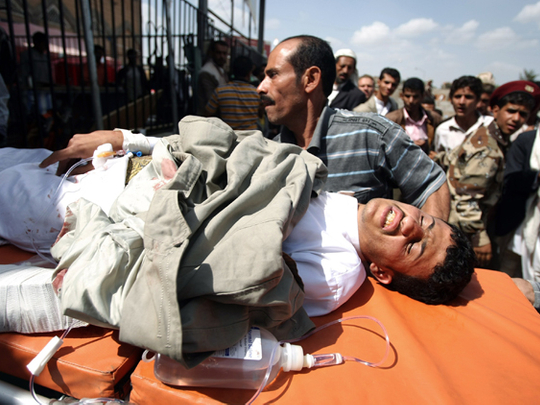
There is nothing worse for a country than to be standing on the brink of the unknown as far as its future is concerned. Having such a state of affairs not only puts it in jeopardy but also threatens any prospect of nation-building. Yemen is one country which is standing at the crossroads of an unknown future, as it struggles to reach a clear position between the government and the opposition.
For months, there has been an abundance of uncertainty in Yemen. A continued episode of clashes between government forces and protesters is counter-productive for all parties involved.
Yemen's President Ali Abdullah Saleh cannot ignore the culmination and continuation of these protests on the streets. As a matter of fact, the clashes between both sides would surely continue if a solution is not reached soon.
The most recent violence has seen a senior Yemeni security police official being shot dead by an unidentified gunman in Aden. And although this incident is blamed by authorities on militants linked to Al Qaida, it stands as a good example of what Yemen has to face today. The challenges of a state falling prey to violence thwart any attempt to build civil society institutions and ensure the establishment of a democratic process.
It is therefore unacceptable to see Saleh giving yet another statement that he will be stepping down soon as the more he repeats it, the more he loses credibility.
The focus of the entire situation in Yemen though should not be taken out of its true context. Yemen has to return to the track of nation-building as the current political vacuum is serious and its negative effects could last for a very long time.





